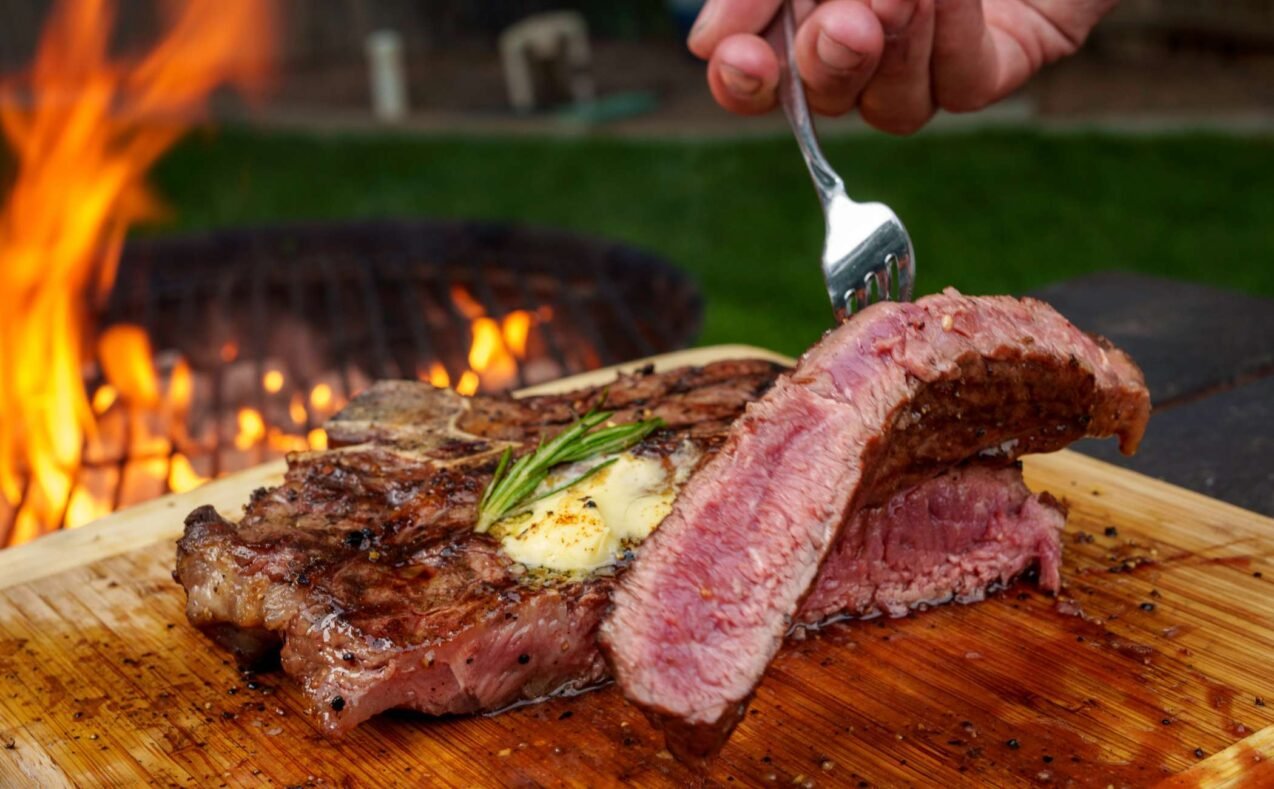The global beef industry is seeing a significant shift as consumer preferences evolve towards healthier and more sustainable options. Grass-fed beef, in particular, has garnered attention for its perceived health benefits and environmental implications.
According to Future Market Insights, the grass-fed beef market experienced a steady compound annual growth rate (CAGR) of 2.9% from 2018 to 2022, reaching a valuation of $11.9 billion in 2022.
The growth shown in the study is attributed to consumers' increasing awareness of the health advantages associated with grass-fed beef, such as improved heart health and essential nutrient content. The market is projected to continue its upward trajectory, driven by the demand for premium meat products and sustainability concerns.
The environmental impact of beef production remains a topic of debate. A study published in the Proceedings of the National Academy of Sciences challenges the notion that grass-fed beef is more environmentally friendly, indicating that it does not necessarily result in lower carbon emissions compared to conventional methods. The study suggests reducing overall beef consumption might be a more effective strategy for mitigating climate change impacts.
In the United Kingdom, forecasts suggest a 6.3% reduction in prime cattle slaughter by 2030 compared to 2023 figures, assuming current trends in the national dairy and suckler cow herds persist. This anticipated decline may impact national self-sufficiency in beef, prompting the industry to explore alternative strategies to maintain supply levels.
Innovative approaches are emerging to enhance sustainability in beef production. Researchers in Oregon are investigating the potential of feeding cattle seaweed to reduce methane emissions, a significant contributor to greenhouse gases.
Initial studies suggest incorporating Pacific dulse seaweed into cattle diets could suppress methane production without compromising meat quality.

 Trump has begun another trade war. Here's a timeline of how we got here
Trump has begun another trade war. Here's a timeline of how we got here
 Canada's leader laments lost friendship with US in town that sheltered stranded Americans after 9/11
Canada's leader laments lost friendship with US in town that sheltered stranded Americans after 9/11
 Chinese EV giant BYD's fourth-quarter profit leaps 73%
Chinese EV giant BYD's fourth-quarter profit leaps 73%
 You're an American in another land? Prepare to talk about the why and how of Trump 2.0
You're an American in another land? Prepare to talk about the why and how of Trump 2.0
 Chalk talk: Star power, top teams and No. 5 seeds headline the women's March Madness Sweet 16
Chalk talk: Star power, top teams and No. 5 seeds headline the women's March Madness Sweet 16
 Purdue returns to Sweet 16 with 76-62 win over McNeese in March Madness
Purdue returns to Sweet 16 with 76-62 win over McNeese in March Madness








